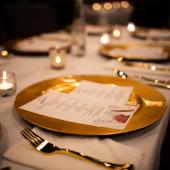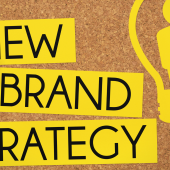Want to Ask Better Questions? Try This Powerful Exercise
Imagine this scenario: A woman walks into a hardware store. She can buy 6 for $6, 12 for $12, or 24 for $12. What is she buying?
I've asked this question of thousands of executives over the years, and no one has ever gotten the correct solution immediately (unless they've heard it before). There's not enough information for them to find a proper answer. Therefore, I allow them to ask me any number of yes/no questions. Sort of like 20 questions.
The first questions people inevitably ask are:
- Is the item metal?
- Is it a BOGO--buy one, get one free?
- Do you use it to attach something to something else, like a screw or nail?
The list has become quite predictable. Why? People form a solution in their mind and then ask questions that validate what they believe to be true. In other words, their questions are solutions masquerading as questions. Most people do this often, both professionally and personally.
Sometimes this is done in order to "lead the witness." That is, we have an agenda and our question is designed to get another person to agree with us. "Would you like to go to McDonalds tonight for dinner?" The solution is fast-food. A non-leading question would be, "What would you like to eat for dinner?" But if you have your heart set on a Big Mac, you may get an answer you don't like.
In other cases, we do this because we jump to conclusions and then ask questions that support our hypotheses. Using the hardware store example above, if you think the answer is a ruler, you may ask, "Does it have anything to do with measurement?" In case you are wondering, it doesn't.
How do you overcome this tendency? One key is to pause and ask yourself, "What assumptions am I making? What do I believe to be true?" Then start considering the possibility that your assumptions aren't true.
Another way is to ask non-leading questions that are designed to truly gather more information rather than confirm your belief.
With the example above, no one ever asks this question: "Is 48 $12?" But from my perspective, this should be the next logical question. Instead of jumping to conclusions, I am now in a position to get more data. By the way, 48 is $12. The next logical question might be, "Is 96 $12?" Again, the answer is yes.
When I demonstrate this form of questioning, people become intrigued. They'd not thought about asking questions this way. They get excited. Often the next question is, "Is any number greater than $12?" Yes!
To put them out of their misery, at this point I tell them, "97 is $12. 98 is $12. 99 is $12. But 100 is not $12."
Armed with this new information, after a little more thinking, someone inevitably gets the correct answer: house numbers. Each number costs $6. Therefore, the number 6 (or 7, 8, or 9) is $6. 12 is two numbers, "1" and "2" - and is therefore $12. 100 is three numbers and is $18.
At this point, there is a collectively sign of relief that the puzzle has finally been solved. Closure.
And although the exercise can be a bit painful for some, it makes a powerful point that people don't quickly forget: Our questions can be powerful tools for learning, but only if they challenge our assumptions rather than confirm our beliefs.



